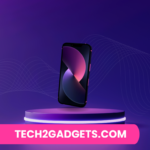Example of Innovative Technologies in Education and Tourism

Source: Canva Pro
Innovative technologies are transforming education and tourism, creating new ways of learning and exploring the world.
We live in an era marked by rapid technological evolution, where disruptive innovations are redefining the way we interact with the world around us. In education and tourism, these transformations have been especially impactful.
Learn how innovative technologies of the future, such as Artificial Intelligence, Virtual Reality and Metaverse, are shaping the future of these sectors, creating new opportunities and innovative experiences.
Find out what innovative technologies are
Innovative technologies are often disruptive, that is, they change the way people do things in a significant way.
They create new markets, transform or destroy existing industries, and change the way people live and work. A classic example of disruptive technology is the smartphone, which has revolutionized the way we communicate and access information.
In the context of education, innovative technologies are being used to personalize learning, allowing students to progress at their own pace and access content tailored to their individual needs.
In the tourism sector, these technologies are creating immersive and personalized experiences for travelers, such as virtual tours and augmented reality services.
Through technological innovation, new business opportunities are created, new jobs are created and new forms of social interaction are established. Innovative technologies are not just a technical advance, but an essential driver of social, economic and cultural change.
Innovative technologies: Some examples
Technological advancement is constantly shaping the world around us, and this is no different in sectors such as education, tourism and communication.
From Artificial Intelligence to Augmented Reality and the promising 6G Internet, these technologies not only set new standards but also pave the way for new possibilities and creative solutions. Let’s explore how these innovations are changing the game and setting the stage for an increasingly technological and connected future.
Artificial intelligence
Artificial Intelligence (AI) is one of the most impactful technologies today. It refers to the ability of machines to learn, reason and make decisions in a similar way to humans, using complex algorithms and large sets of data.
In education, for example, AI is being used to personalize learning by adapting teaching content and methodology to individual students’ needs.
Another surprising example that can be given is in tourism, where AI-based virtual assistants can provide personalized and efficient customer service, improving the traveler’s experience from planning to accommodation, surreal right?
The future of Artificial Intelligence promises continued advances in areas such as machine learning, natural language processing, computer vision and robotics. Trends include the development of autonomous AI and systems increasingly integrated with humans, known as hybrid AI systems.
Metaverse
The Metaverse is an emerging concept that describes a three-dimensional virtual environment where people can interact with each other and with digital objects, in real time. Metaverse combines elements of virtual reality (VR), augmented reality (AR), and other immersive technologies to create a highly interactive experience.
The Metaverse has a wide range of applications across diverse industries, including entertainment, education, commerce, art, and more. In the entertainment industry, the Metaverse offers new forms of immersive experiences, such as virtual concerts, music festivals and sporting events.
6G Internet
6G Internet is the next generation of mobile communication technology, planned to succeed the current 5G. It promises to offer even faster, more reliable and low latency connectivity.
6G Internet paves the way for a new generation of innovative applications and services. A good example of how it would work better is in the healthcare field, 6G could enable remote medical procedures such as virtual consultations and robot-assisted surgeries. 6G Internet represents a significant advance in the field of mobile communications and has the potential to radically transform several sectors of the global economy.
Innovative technologies in education
Education is always developing, with new technologies playing a crucial role in changing the learning process. Innovations such as Virtual Reality, Gamification and Artificial Intelligence are significantly transforming the way students learn and teachers teach.
These tools not only make learning more interactive and accessible, but they also create new opportunities for personalization and increased engagement.
Virtual reality
Education is undergoing a radical transformation driven by innovative technologies, and Virtual Reality (VR) is emerging as a powerful tool to enrich the learning process. VR offers the opportunity to transport students into fully immersive virtual environments where they can explore abstract concepts in a tangible way.
For example, in a biology class, students can dive into a living cell and observe its internal components in detail, providing a deeper, more visual understanding of biological processes.
AI in education does not replace teachers, but complements their work, allowing them to focus more on meaningful interactions with students and less on managing routine tasks.
These innovative technologies in education are transforming the way students learn and teachers teach, creating a more dynamic, adaptable and effective educational environment. They represent a significant advance in the search for quality and accessible education for all.
Gamification practice
Gamification is another innovative technology being adopted in education to motivate students, increase engagement and improve learning outcomes. This approach uses game elements, such as points, rewards, challenges and competitions, to transform the educational process into a more dynamic and interactive experience.
Gamification in education not only makes learning more enjoyable, but also prepares students to face 21st century challenges by developing essential skills like collaboration, critical thinking and problem solving. It is a powerful tool for educators looking to engage their students and improve educational outcomes in innovative ways.
Innovative technologies in tourism
Tourism is a dynamic and constantly evolving industry, driven by the incessant search for unique and memorable experiences. In recent years, innovative technologies have played a key role in transforming this industry, offering new ways to plan, experience and share travel.
Virtual and augmented reality
Virtual Reality (VR) and Augmented Reality (AR) are revolutionizing the tourism industry by offering immersive and personalized experiences for travelers. With VR, tourists can explore remote destinations and famous tourist spots without leaving home, while AR adds digital elements to the real world, enriching the travel experience.
For example, AR applications can provide information about tourist attractions, translate signs and menus in real time, and even simulate historical scenes or cultural events.
eSim International
eSim Internacional is an innovative technology that allows travelers to stay connected anywhere in the world without having to change SIM cards.
With eSim, tourists can activate data plans on their mobile devices instantly, ensuring global connectivity for calls, messages and internet use, making their international trip even better! This eliminates the need to purchase and exchange local SIM cards at each destination, thus making it easier to stay digitally connected throughout your journey.
AI Lodging
Artificial Intelligence (AI) is increasingly being used in accommodation management to improve the guest experience and optimize hotel operations. Lodging AI systems can predict demand patterns, adjust room prices, personalize offers and recommendations for guests, and automate administrative tasks such as check-in and check-out.
Additionally, AI can be used to monitor guest feedback in real-time and proactively respond to any issues or requests, ensuring a more satisfying stay!










